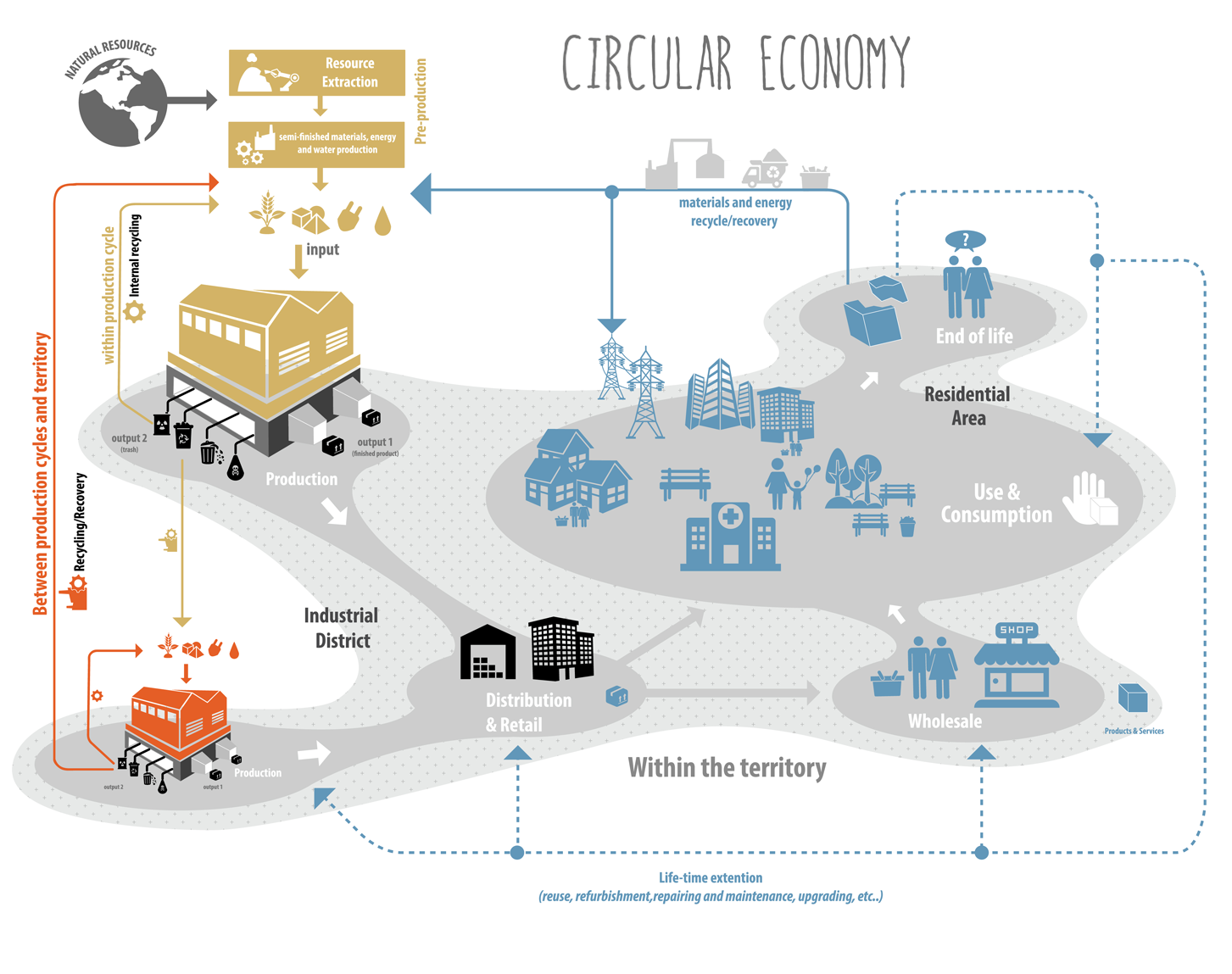
Circular Economy
Circular Economy is a development model on sustainability, innovation, participation and sharing, which aims to maintain the highest value in the resources used in processes, products and services, in a longer-term perspective, and to optimize the production of goods, to reduce consumption and waste, and to valorise scraps and waste.
The transition to a circular economy model offers significant opportunities for the economy, the environment, the employment and the competitiveness. The European Commission has allocated over 10 billion euros for the implementation of this model and estimates, for our country, over 11 billion in economic and environmental savings in 20 years, as well as the creation of more than 20,000 new jobs and a reduction in greenhouse gas emissions of nearly 111 million tons.
- Download flyer
- ENEA magazine 3/2019
eai.enea.it
RIVOLUZIONE ECONOMIA CIRCOLARE - SPECIALE 3/2019 ENEA
magazine eai.enea.it
I PROGETTI ENEA PER L’ECONOMIA CIRCOLARE
ENEA for Circular Economy
ENEA has advanced knowledge and expertise in the development and management of circular economy tools, technologies and services, for efficient use and management of resources, ranging from design to the production of goods and services and closure of loops, finalized to achieve the highest possible value for resources, thus reducing their consumption.
The Agency provides support to enterprises and public administration bodies and other stakeholders with:
- highly specialised researchers and technicians, and know-how in the field of process, product/service and system eco-innovation;
- infrastructures, technology halls, pilot plants, laboratories/workshops, digital platforms and databases;
- eco-innovative methodologies and approaches;
- advanced technologies (realization, diffusion and implementation) for characterization and production of innovative materials, recovery/recycling, valorization of resources, treatment of scraps, waste and effluents;
- new business and management models for urban and industrial areas;
- tools for quantitative monitoring of circularity and resource diagnosis;
- back-up for development of local, national and European strategies and adaptation of regulatory instruments;
- patents and software development for the circular economy;
- training, information and communication
